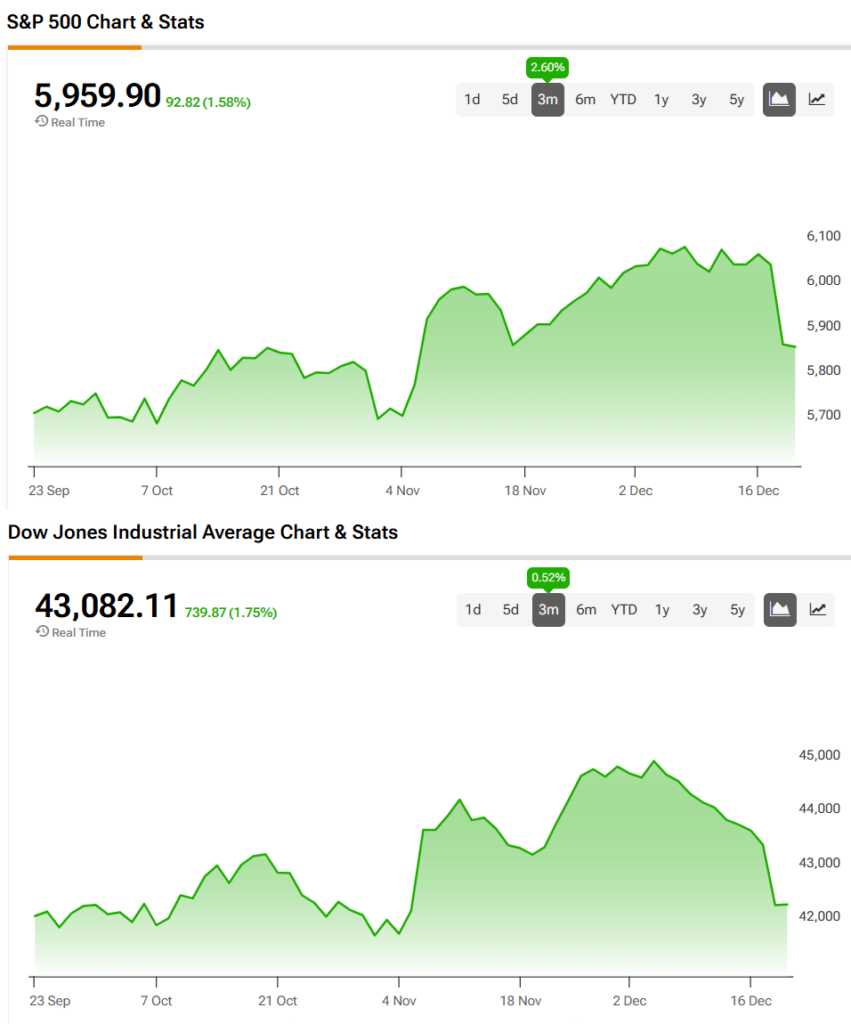The November Personal Consumption Expenditures (PCE) report is out and with it comes the latest inflation data for the U.S. Included in that report is inflation increasing 2.3% year-over-year. That’s welcome news for economists as it comes in below their 2.4% estimates. Inflation on a month-to-month basis increased by 0.1% from October, which is also below experts’ 0.2% estimate.
Pick the best stocks and maximize your portfolio:
- Discover top-rated stocks from highly ranked analysts with Analyst Top Stocks!
- Easily identify outperforming stocks and invest smarter with Top Smart Score Stocks
Switching to the core PCE price index, inflation was 2.8% compared to November 2023, matching experts’ estimates. It also rose 0.1% from October, better than economists’ 0.2% estimate. This index removes food and energy due to the volatile nature of prices in these sectors.
What This Means for the Economy
Inflation coming in lower than expected is good news for the U.S. economy. The PCE report is the Federal Reserve’s main focus when weighing options for keeping the economy and inflation in check. That includes interest rate cuts, which have been a hot topic recently.
While the PCE report comes in too late to affect the Fed’s meeting earlier this week, it still cut interest rates by a 25 basis point this month. There were also warnings that the central bank might slow its plan to reduce interest rates in 2025. However, lower inflation than expected may help alter the Fed’s decision.
Does This Affect the Stock Market?
The quick answer is yes, the PCE report does affect the stock market. Specifically, the S&P 500 (SPX) and Dow Jones Industrial Average (DJIA) both often see gains or losses alongside inflation reports. That’s true today as well with the latest inflation news helping lift the S&P 500 1.58% higher as of this writing. The Dow Jones is seeing a similar 1.75% increase on Friday alongside the November PCE Report.




















